"Research in Action" Seminar Series 2023-2024
Coordinator: Diletta Marcucci, GRITIM-UPF Coordinator
This seminar series focuses on critically evaluating how migration research is conducted by hosting different researchers and experts. Invited speakers in the field of migration will interact with the audience, focusing on the practice of research and expertise.
The lectures and roundtables will take place at both UPf and IEMed (European Institute for the Mediterranean).
Please note that the format of this Seminar Series is hybrid and the weblink will be provided one week prior to the session.
UPF: Campus Ciutadella (map), Building 40 Roger de Llúria, Casamigla Room
IEMed: Carrer Girona, 20. 08010 Barcelona, Aula Mediterrània
IEMed Inaugural Lecture: At History’s Edge: The Mediterranean Question
Thursday 19 October 2023, 18:30-20:00, IEMed (Aula Mediterrània)
Welcome note and chair: Professor Ricard Zapata-Barrero, GRITIM-UPF
Invited speaker: Professor Iain Chambers, Oriental University in Naples
Synopsis
This talk seeks to puncture prevalent European understandings of the Mediterranean. The colonising impulse inscribed in Occidental politics, philosophy, and historiography cannot be undone simply by adding previously repressed and unacknowledged histories and lives. Instead, a re-examination of the premises and procedures that produced such exclusions leads to a change in coordinates. A predominantly ocular order of knowledge that creates subaltern objects of study to reconfirm European centrality and subjectivity is interrogated. Insisting on a politics of registration and listening, further critical incentives drawn from literature, music, and cinema are deployed to queer existing representations and release a more exposed, heterogeneous, and turbulent Mediterranean that is irreducible to the flatness of a geo-political or disciplinary map.
Biography
Iain Chambers is Professor of the Sociology of Cultural Processes at the Oriental University in Naples. Drawing on his formation at the Centre for Contemporary Cultural Studies (Birmingham), Iain Chambers has consistently developed interdisciplinary and intercultural studies on contemporary metropolitan cultures and music while teaching at the University of Naples, Orientale. More recently he has transmuted this line of research into a series of postcolonial analyses of the formation of the modern Mediterranean. He is the author of many articles and the following volumes: Urban Rhythms: pop music and popular culture (1985), Popular Culture. The metropolitan experience (1986), Border dialogues. Journeys in postmodernity (1990), Migrancy, culture, identity (1994), Hendrix, hip hop e l’interruzione del pensiero (with Paul Gilroy) (1995), Culture after humanism (2001), Mediterranean Crossings. The Politics of an Interrupted Modernity (2008), Postcolonial Interruptions, Unauthorised Modernities (2017), Mediterraneo Blues. Musiche, malinconia postcoloniale, pensieri marittimi (2020), and, with Marta Cariello, La questione mediterranea (2019). He is author of Mediterranean Crossings: The Politics of an Interrupted Modernity (Duke University Press, 2008).
Roundtable 1: Multi-Stakeholder Mobilization in Migration
Thursday 1 February 2024, 15:00-18:00, Campus Ciutadella (UPF), Calsamiglia Room
This is a round-table discussion with academics and civil society activists focuses on insights on various forms of mobilization for peace, gender equality, and inclusion of activists in migration. In this session, we ask how can different actors work towards influencing research and activism on gender? How can we conceptualize the nexus between research and mobilization strategies? We will hear personal narratives and critically reflect on Barcelona as a space of mobilizing for migrants and refugees from different backgrounds. Students will be responsible to introduce speakers, facilitate, and lead the Q&A. This session is open to the public.
Invited Speakers:
-
Razan Ismail: "Gender responsive migrant integration policy-making on a local and regional levels"
-
Kristian Herbolzheimer: "The role of diasporas in peacebuilding"
-
Georges Azzi: "Oppression migration and challenges faced by LGBTQ+ migrants in Europe"
-
Nena Mocnick: "Methodologies and ethics for an inclusive decolonial care/aid in research"
Biographies
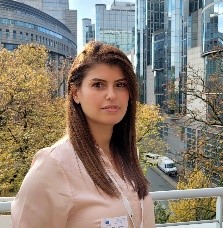
Razan Ismail is a Policy consultant on Gender Equality & Migration at the EU Commission Migration Expert Group, Founder at Asociación Kudwa, and COO & Head of Training at New Women Connectors. Advocating for transformative and inclusive policymaking in Europe, with a feminist leadership lens and a focus on promoting meaningful participation of migrants and refugees.
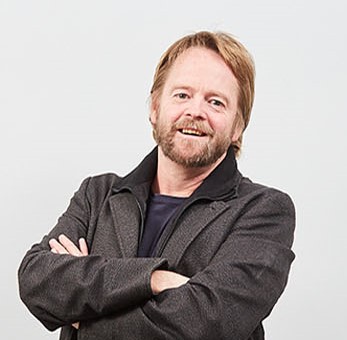
Kristian Herbolzheimer has been the director of the International Catalan Institute for Peace (ICIP) since September 2018. An agricultural technical engineer from the University of Lleida (1994), Herbolzheimer has a diploma in Culture of Peace from the UAB’s School for a Culture of Peace (Escola de Cultura de Pau, ECP) (2001) and a Master in International Peacebuilding from the Kroc Institute for International Peace Studies of the University of Notre Dame, in the United States (2009). He is an analyst of peace processes and an expert on the role of civil society in transitions. He has advised and supported the peace processes in the Philippines, the Basque Country and Colombia.
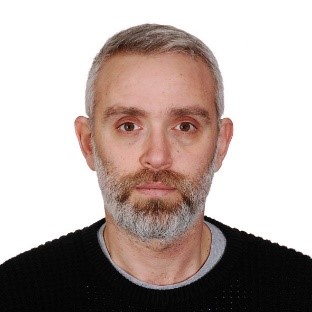
Georges Azzi is a prominent expert in global LGBT advocacy, dedicating his professional life to championing the rights and representation of marginalized communities. For nearly two decades, Georges has spearheaded groundbreaking initiatives in the Middle East and North Africa (MENA). He's notably recognized as a pivotal figure behind Helem, the first LGBT rights organization in the Arab World, and the Arab Foundation for Freedoms and Equality (AFE). Georges is presently serving as the MENA SOGI focal point at the World Bank. Recently settling in Spain and serving as the LGBT focal point at the organization Kudwa.
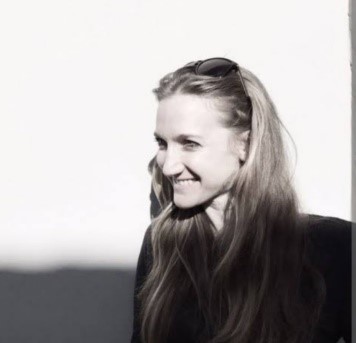
Nena Mocnik is Maria Skłodowska Curie EUTOPIA-SIF COFUND Postdoctoral Fellow at GRITIM - UPF Barcelona, and a first Digital Humanism Fellow (awarded by Austrian Federal Ministry for Climate Action and IWM Vienna). As a researcher, educator and community worker, she is interested in the topics of collective traumas, identity (gender) violence, and art-based sociotherapy. She is the author of two monographs (Trauma Transmission and Sexual Violence: Reconciliation and Peacebuilding in Post-Conflict Settings, 2021) and her first book "Sexuality after War Rape: From Narrative to Embodied Research" (Routledge 2017), awarded Bank of Montreal Award in Women's Studies (University of Ottawa, 2018).
Roundtable 2: Mediterranean Mobilities from a Gender Perspective: Insights for Research and Collaborations
Tuesday 20 February 2024, 11:45-13:45, Institut d'Estudis Catalans (IEC)
Welcome note and chair: Gemma Aubarell, Director of Gender, Culture, and Civil Society at IEMED
Invited Speakers:
- Manal El Abboubi: Insights from Morocco on Employment, Entrepreneurship, and Women’s Migration
- Alicia Pérez-Porro: Science Diplomacy from an Intersectional Lens
- Nelli Kambouri: Researching Gender, Migration, Music and Sound in Athens from an Intersectional Feminist Perspective
- Carmen Geha: The displacement of Gender Equality Activists from the Arab Middle East and North Africa
Synopsis
This roundtable focuses on research that explores the multifaceted aspects of Mediterranean migration from a gender lens. We focus our dialogue on developing research that can build towards collaborative and participatory efforts to influence policies and practices shaping Mediterranean mobilities and migration. We draw on an intersectional feminist angle and interdisciplinary experiences and expertise on both sides of the Mediterranean to advance a shared agenda for researching mobilities from a gender lens. Our aim is to leverage the voices and experiences of scholars and researchers on the nexus of gender and Mediterranean studies.
Biographies
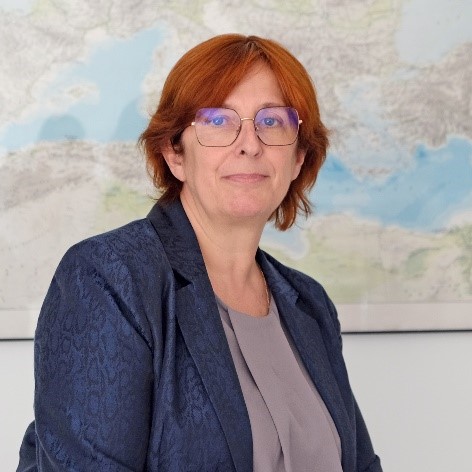
Gemma Aubarell has a long career dedicated to Mediterranean relations. Linked to the Catalan Institute of the Mediterranean since 1989, she was Director of Programs (2000-2008) when the Institute had already become the European Institute of the Mediterranean (IEMed). She has been Head of Programme and Networks Unit of the Anna Lindh Foundation for the Dialogue between Cultures (Alexandria, Egypt) 2009-2016. As Head of the Mediterranean Relations and European Networks Service at the Government of Catalonia, she has coordinated the Government’s Mediterranean Strategy MedCat 2030 (2018-2023).
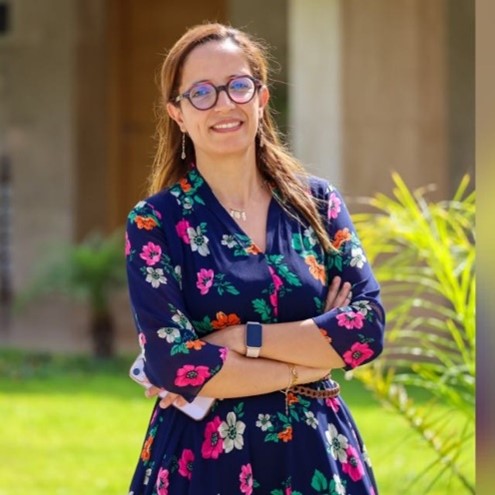
Dr. El Abboubi is professor of management science at University Mohamed V in Rabat (Morocco). She is the holder of the “Social Innovations” chair at HEM-Research center and the vice president of ORSEM (Morrocan Observatory of Corporate Social Responsibility). Her research interests are mainly inclusion and diversity, CSR and HR management. She is the morrocan country partner of the SAWI project (support and accelerate women inclusion) in partnership with the American University of Beirut, and she is conducting fundamental applied research in the field of “gender inclusion” in Morocco.
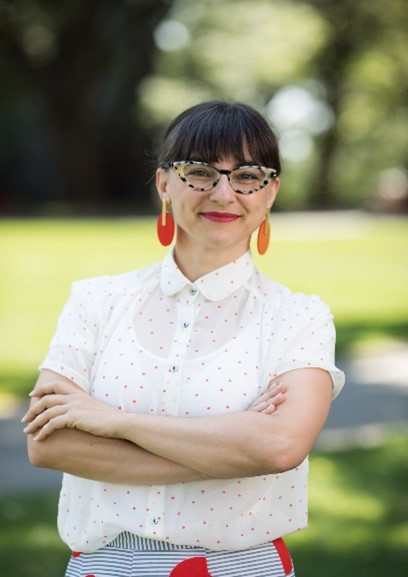
Dr. Alicia Perez-Porro is a marine biologist by training, an environmental activist by heart, and a mother of two little children. She connects environmental science, diplomacy, and justice for a more just and sustainable future for all. She is the Scientific Coordinator of CREAF (www.creaf.cat)— a public scientific research institute near Barcelona, Spain dedicated to understanding and addressing the environmental challenges faced by our planet — where she is part of the management team, oversees the international relationships, and leads the Mediterranean strategy (MedCREAF). She also sits at the International Institute for Environment and Development (IIED) Board of Trustees, and is part of the Spanish Science Media Center advisory board. Recently, she has been selected by the European Commission as one of the experts for the EU Science Diplomacy Working Groups to develop potential elements of a future European framework for science diplomacy.
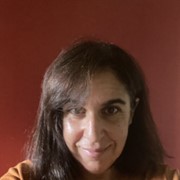
Dr. Kambouri is an Assistant Professor at the Department of Social Anthropology, Panteion University of Social and Political Science, and a Senior Research Fellow with the ERC CoG project MUTE. She he has worked for several years in research projects at Panteion University’s Centre for Gender Studies, the Foundation for Research and Technology, and the University of Hertfordshire. She has also served as scientific consultant for the International Labor Organization and the General Secretariat for Gender Equality.
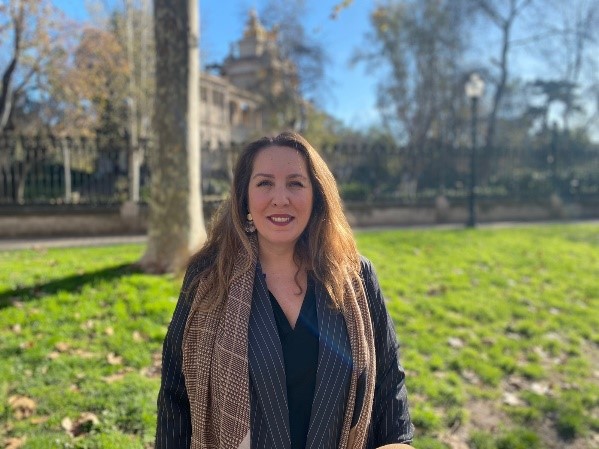
Dr. Geha is a Senior Member of GRITIM-UPF, anda Maria Zambrano Fellow at Pompeu Fabra University. She is a doctor of International Relations from the University of St. Andrews (2014). She is also an investigator of the project “Support and Accelerate Women’s Inclusion” (SAWI) focusing on mobilizing employers across the MENA for transforming workplace policies and practices.
Prior to migrating to Spain (2022), she was Tenured Associate Professor of Public Administration and Leadership at the American University of Beirut (AUB). At AUB, she was co-founder of the Center for Inclusive Business and Leadership (CIBL) for Women, and former Founding Director of the Afghan Women scholarship program. Carmen is a Fulbright Scholar and has been a visiting scholar at Harvard University, the Institute for Advanced Study, the Watson Institute in Brown University, and the University of Witswatersrand in Johannesburg.
IEMed Lecture 2: Libya and the Sahara Migratory System
Thursday 14 March 2024, 18:30-20:00, IEMed, (Aula Mediterrània)
Welcome note and chair: Lorenzo Gabrielli, Senior Researcher GRITIM-UPF
Invited Speaker: Julien Brachet, Researcher the Institut de recherche pour le développement (UMR DevSoc, IRD - University of Paris 1 Panthéon-Sorbonne)
Synopsis
Libya plays a key role in the Saharan migratory system. For decades, trans-border mobility between the Sahel and north Africa, including Libya, was predominantly irregular but not clandestine. Until the late 1990s, trans-Saharan drivers were never considered smugglers of people, although they might have been recognized as smugglers of good. However, starting from the early 2000s, the EU and European countries stepped in, considering all trans-Saharan movements as a potential pathway towards Europe, and thus encouraging national authorities to stop them. This resulted in the enforcement of stricter migration policies throughout northwest Africa, involving not only governments but also various actors, including international organizations. In 2011, when war broke out in Libya and forced 1.5 million people to flee the country, many among them, originating from sub-Saharan Africa, were assisted in returning to their homelands by the International Organization for Migration (IOM). This communication aims to question the purely humanitarian nature of the IOM intervention with references to its activities before and after the conflict. It shows that this organization has long been involved in the implementation of European migration policies in Libya and more widely in the Sahara, without being accountable to any people. I argue that, through the replacement of local politics by international crisis management, the Sahara is gradually integrated into a zone of international bureaucratic expedience. War and humanitarian intervention appear as contingencies in the progressive implementation of a global system of surveillance, spatial control and management of mobility in Africa.
Biography
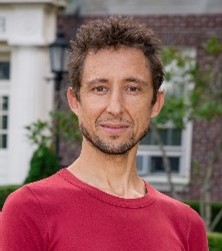
Julien Brachet is a researcher at the Institut de recherche pour le développement (UMR DevSoc, IRD - University of Paris 1 Panthéon-Sorbonne). His research investigates economic and political dynamics in the Sahara and the Sahel, in particular in Niger and Chad where he has carried out long-term fieldwork. He studies patterns of mobility to and through these regions, with a focus on human migration, trade and transport networks from a historical perspective, in order to understand the ways in which intra- and inter-regional relations are structured. His research also focuses on the forms of political power and territorial sovereignty below and beyond the national level. He has been a visiting fellow at the universities of Niamey (2004-2006), Oxford (2010) and N’Djaména (2012), and at the Institute for Advanced Study in Princeton (2021-2022), and a Marie Skłodowska-Curie Fellow at the University of Oxford (2015-2017). Former editor-in-chief of the quarterly journal Politique africaine (2018-2021, with V. Bonnecase), he is notably the author of Migrations transsahariennes. Vers un désert cosmopolite et morcelé (Paris, 2009) and The Value of disorder. Autonomy, prosperity and plunder in the Chadian Sahara (Cambridge, 2019, with J. Scheele).
Roundtable 3: Emerging Collaborations between Cities and Universities on Migration and Displacement - Insights from Barcelona
Monday 15 April 2024, 15:00-18:00, Campus Ciutadella (UPF), Calsamiglia Room
Invited Speakers:
-
Xavier Aragall, program manager Euromed, European Institute of the Mediterranean
-
Neema Balolebwami Nelly, Founder of EMEA Venture Builder
-
Ramon Sanahuja: Intercultural Dialogue and Religious Pluralism Department of the city of Barcelona
Synopsis
This will be the final round-table for our speaker series for our Master students, and it is also open to the public. Our aim is to take a close look at how universities can work with decision-makers at the local level to co-design policies and programs focusing on migrants and refugees. We will draw lessons from the case of Barcelona and investigate the emerging questions on impact in academia, knowledge transfer, and evidence-based policy-making. Students graduating from GRITIM-UPF, can begin to think of how their future roles and careers can be aligned with academic research and the ways in which practice and research intersect. Students will be responsible to introduce speakers, facilitate, and lead the Q&A.
Biographies
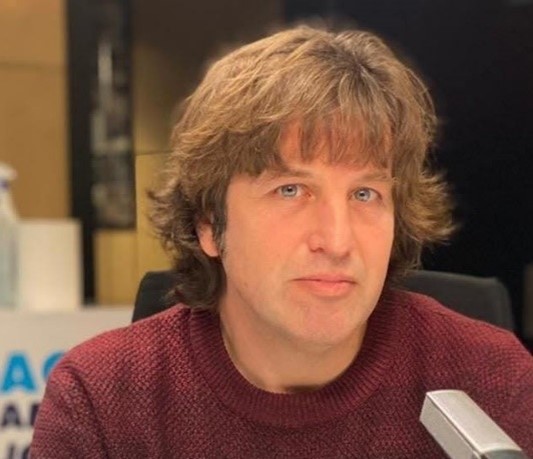
Xavier is program manager of migrations and the Euromed survey at the European Institute of the Mediterranean. Xavier has been Coordinator of the Migration Programmes, member of the scientific team of the Euromed Survey (2010-2019), and at present is EuroMeSCo Euromed Survey Officer, responsible for coordinating the fieldwork, questionnaire design and quantitative analysis of the results. In the area of migration programmes, Xavier has coordinated the organisation of seminars on comparative migration policies and migrations in the Mediterranean, and the research projects “Immigration and the Euro-Mediterranean Area: Keys to Policy and Trends” and “Role of Immigrant Communities in the Euromed Relations” and books on migration management. He was coordinator of contents in the Technical Secretariat of the 2004 World Congress Human Movements and Immigration. Xavier has written extensively on the external dimension of migration policies and the migration-development link and is a frequent contributor to various media outlets, providing analysis on migration dynamics in the region.
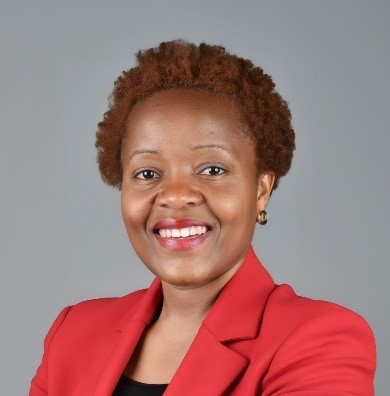
Neema is a Founder, Artificial Intelligence Expert, Data scientist, Full-stack Web Developer and Economist. She is deeply engaged to address bias within the datasets that power AI systems. Her work demonstrates a fusion of technical expertise and a deep commitment to ethical and responsible practices in the field of Artificial Intelligence. Neema has achieved academic excellence with two Master's degrees, one in Business and Research (MSc) from the University of Barcelona in Spain and another in Economy and Management (MSc) from the University of Annecy in France. Furthermore, she has completed training as both a Data Scientist and a Full-Stack Web Developer, showcasing a versatile skill set. Neema advocates for diversity and inclusion in the tech industry, she founded Black women Lead to empower women of color in the technology sector.
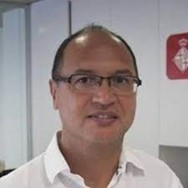
Ramon works at the intercultural and religious Pluralism department of the city of Barcelona. He works on the Implementation Barcelona Intercultural Plan and developing policy tools as the Origin Gap Indicators report. Currently he is also Member of the Steering Group of the City Initiative on Migrants with Irregular Status in Europe (C-MISE) led by Compas- University of Oxford. C-MISE is a knowledge-exchange programme supporting European cities in sharing knowledge on city practices and policies responding to the presence of irregular migrants in their territory. Form August 2005 to January 2020 he was the Director of Migrants attention and welcoming policies of the city of Barcelona. Among many programs he was responsible of the city initiative “Barcelona Refugee City”. He has been responsible of the main One Stop Shop for migrants and refugees of the Municipality of Barcelona (SAIER) since 2011 to 2020. This facility attends around 20.000 persons per year.
IEMed Lecture 3: Nexus of Migration and Urban Governance in the Mediterranean
Thursday 2 May 2024, 18:30-20:00, IEMed, (Aula Mediterrània)
Welcome note and chair: Diletta Marucci, PhD candidate GRITIM-UPF, BROAD-ER Project
Invited Speaker: Rafik Arfaoui, post-doctoral researcher at GRITIM-UPF, BROAD-ER Project
Synopsis
Over the last two decades, the Mediterranean has become a place where thousands of migrants are shipwrecked and die, a place where border controls accentuate the political and social distance between the rivers to the north and south. In this area of tension, cities are increasingly relevant actors and scales for managing the reception of exiled people This presentation focuses on the urban governance of the reception of asylum seekers and refugees in the Mediterranean. What are the opportunities and challenges facing cities? What are the political and social solutions at local level? Case studies from France and Tunisia will provide concrete answers to these questions, as well as insights into methodological and theoretical approaches to migration and urban studies.
Biography
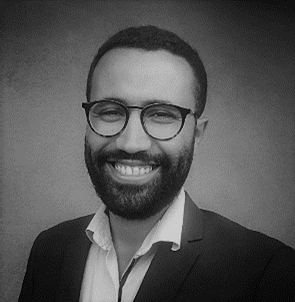
Rafik Arfaoui is a Postdoctoral researcher at GRITIM-UPF, Universitat Pompeu Fabra (Barcelona – Spain). He works on the research project “BROAD-ER: Bridging the Migration and Urban Studies nexus” (2022-2025). His main research interests deal with the urban reconfigurations in both large-sized cities, small & medium-sized cities, and rural areas by the reception of asylum seekers and refugees’ narratives, practices, and policies. Rafik holds a PhD in Geography in December 2021 from the University of Clermont Auvergne (UCA), France. His PhD’s dissertation titled “Multiple territories, plural reception. Social geography of the reception of asylum seekers in non-metropolitan areas“, has received in April 2022 the “Great Prize of the city of Clermont-Ferrand”. From 2021 to 2025, Rafik is a research fellow at the French Collaborative Institute on Migration (Institut Convergences Migrations). In addition to his Research track, he has 5 years’ experience of teaching Geography and Urban Planning as a Research and teaching assistant at the University of Picardie Jules-Verne (Amiens, France), the Polytechnic University Hauts-de-France (Valenciennes, France) and as a Lecturer at UCA.
